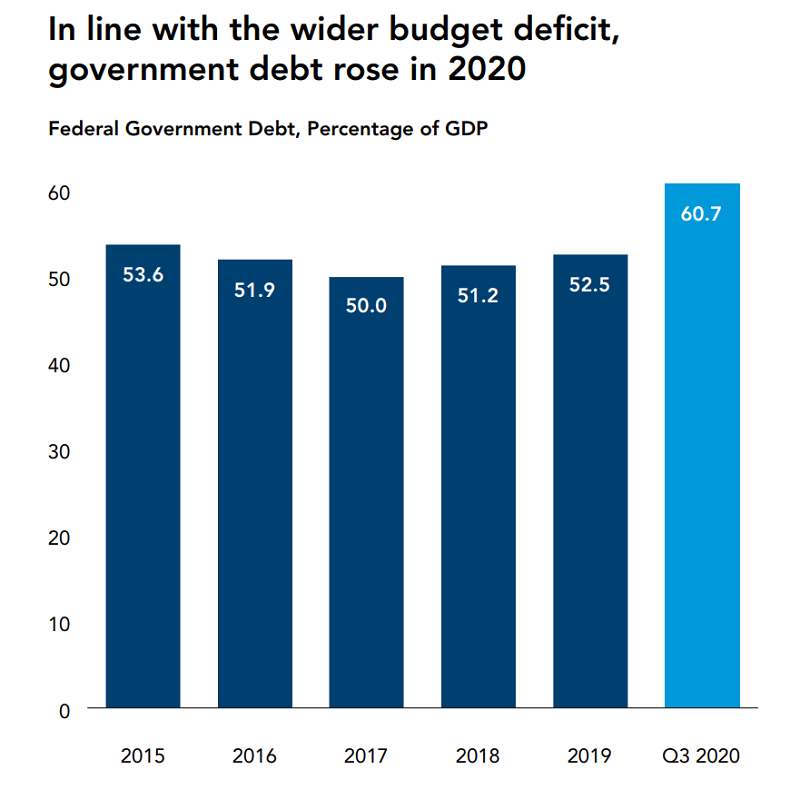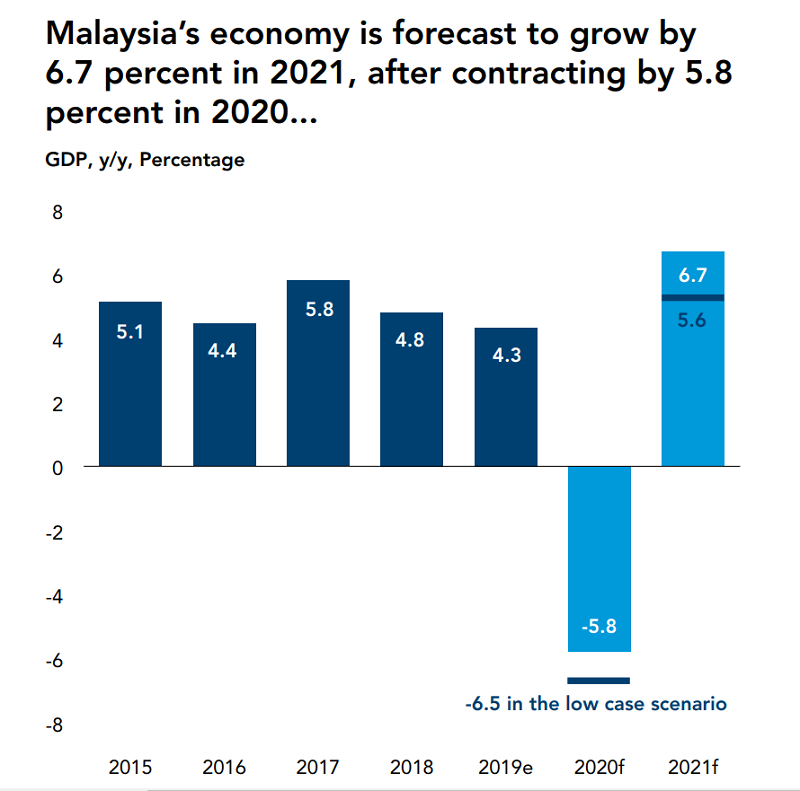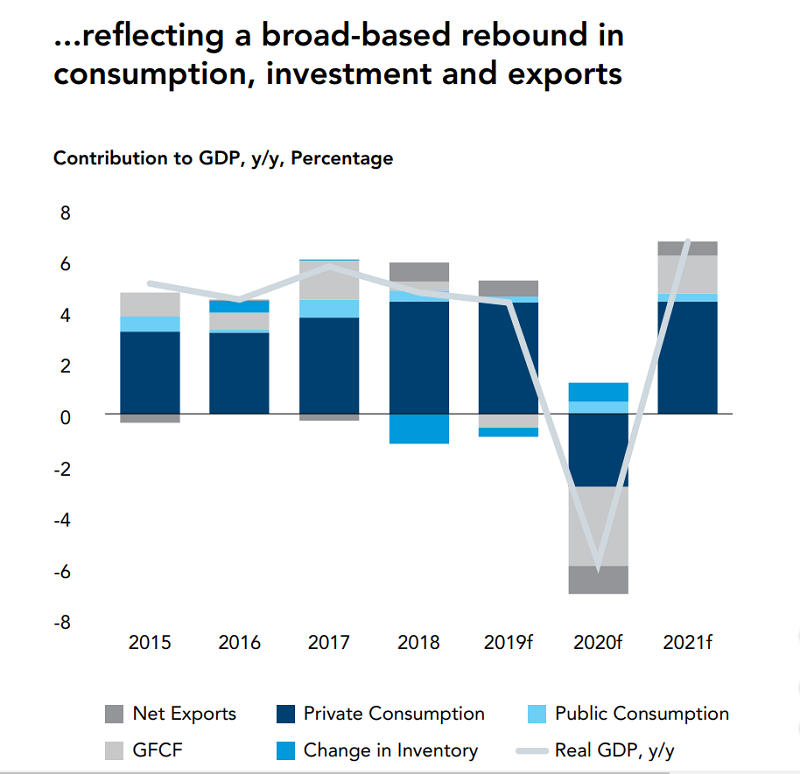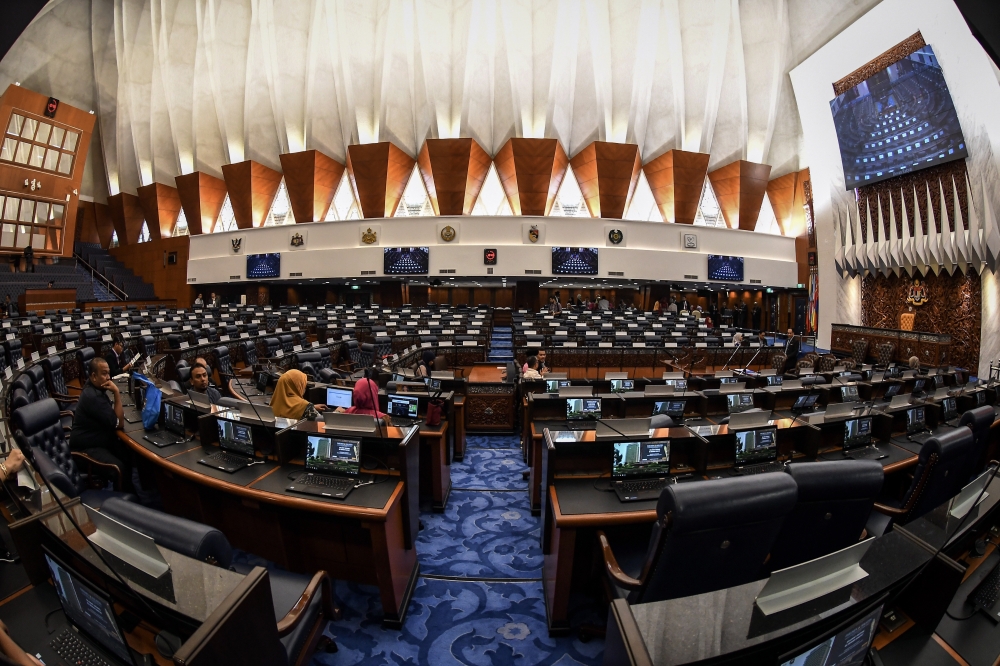KUALA LUMPURs, Dec 17 — The World Bank today said that it expects Malaysia’s fiscal deficit to widen by 6 per cent of the country’s gross domestic product (GDP) in 2020, along with the increase of federal government debt to 60.7 per cent of the GDP.
However, the international financial institution also reported that the nation’s economy would grow by 6.7 per cent in 2021, after a projected contraction of 5.8 per cent this year.
In its Malaysia Economic Monitor report titled “Sowing the Seeds”, the World Bank said the projected rise in fiscal deficit — which amounts to RM86.5 billion — is largely due to the economic downturn caused by the Covid-19 pandemic, and the resulting government stimulus measures.
To mitigate the economic impact of the Covid-19 pandemic, the government had announced a series of stimulus packages throughout the year, including the Prihatin and Penjana packages, worth 21.2 per cent of GDP or approximately RM305 billion.
Previously, in the government’s Budget 2020, the fiscal deficit for the year was initially projected to stand at 3.2 per cent of the GDP, compared to 3.4 per cent in 2019.
The World Bank explained that the 2.8 per cent increase in the projected fiscal deficit was due to an expected increase of revenue of only 0.6 per cent of the GDP, while national expenditure is expected to increase by 3.4 per cent of the GDP.
 According to the World Bank, this larger fiscal deficit caused increased government borrowing, and the federal government debt soared to 60.7 per cent of GDP by the end of September 2020.
According to the World Bank, this larger fiscal deficit caused increased government borrowing, and the federal government debt soared to 60.7 per cent of GDP by the end of September 2020.
“In order to expand fiscal space in response to the crisis, parliament passed the Temporary Measures for Reducing the Impact of Covid-19 Act 2020, which allows the government to temporarily raise the statutory limit on government debt from 55 per cent GDP until 2023.
“The Act sets the domestic debt limit at 60 per cent of GDP and at the end of September it stood at 56.6 per cent of GDP. Federal government borrowings have continued to be mostly ringgit-denominated with a wide range of maturities, limiting exposure to exchange rate and rollover risks,” it said.
Increasing consumption, investment, and exports to boost growth of economy next year
 The World Bank attributed its projected growth of Malaysia’s economy by 6.7 per cent next year to a recovery in exports, consumption and investments.
The World Bank attributed its projected growth of Malaysia’s economy by 6.7 per cent next year to a recovery in exports, consumption and investments.
“Nevertheless, the strength and timing of this recovery will depend largely on the timely availability of an effective mass vaccination program and on the robustness of recovery in global growth and external demand,” it said.
It said that private consumption is expected to rebound to 7.4 per cent growth in 2021 from -4.8 per cent in 2020, as consumer confidence grows following better Covid-19 management and reduced health risks.
 Furthermore, it said improved labor market conditions, along with continued support from pandemic related stimulus measures would also improve private consumption.
Furthermore, it said improved labor market conditions, along with continued support from pandemic related stimulus measures would also improve private consumption.
The World Bank also said that the private investment is expected to grow next year, on the backbone of accommodative policies and measures such as investment tax incentives and additional funds for micro small medium enterprises (SMEs).
It also expected public investment to gather pace along initiatives outlined in the government’s Budget 2021.
“Gross fixed capital formation is projected to grow by 7.2 per cent in 2021, from -13.4 per cent in 2020, supported by increased private and public investment,” it added.
The World Bank also predicted that exports would grow by 8.9 per cent next year, from -9.3 per cent in 2020. This it said, would be caused by recovery in demand and economic activities in regional countries, led by China.
Despite the expected rebound in growth in 2021, the World Bank anticipated that Malaysia’s economic output will take time to return to its pre-pandemic levels.
“With the pandemic leaving indelible scars on productivity through its effects on investment, labor supply and human capital, this is expected to generate substantial headwinds in the recovery process and see the economy modestly progress toward the path of economic activity projected before the Covid-19 pandemic,” it said.



















